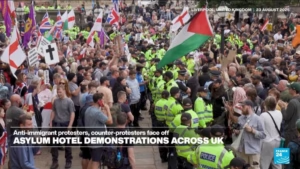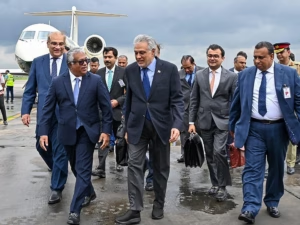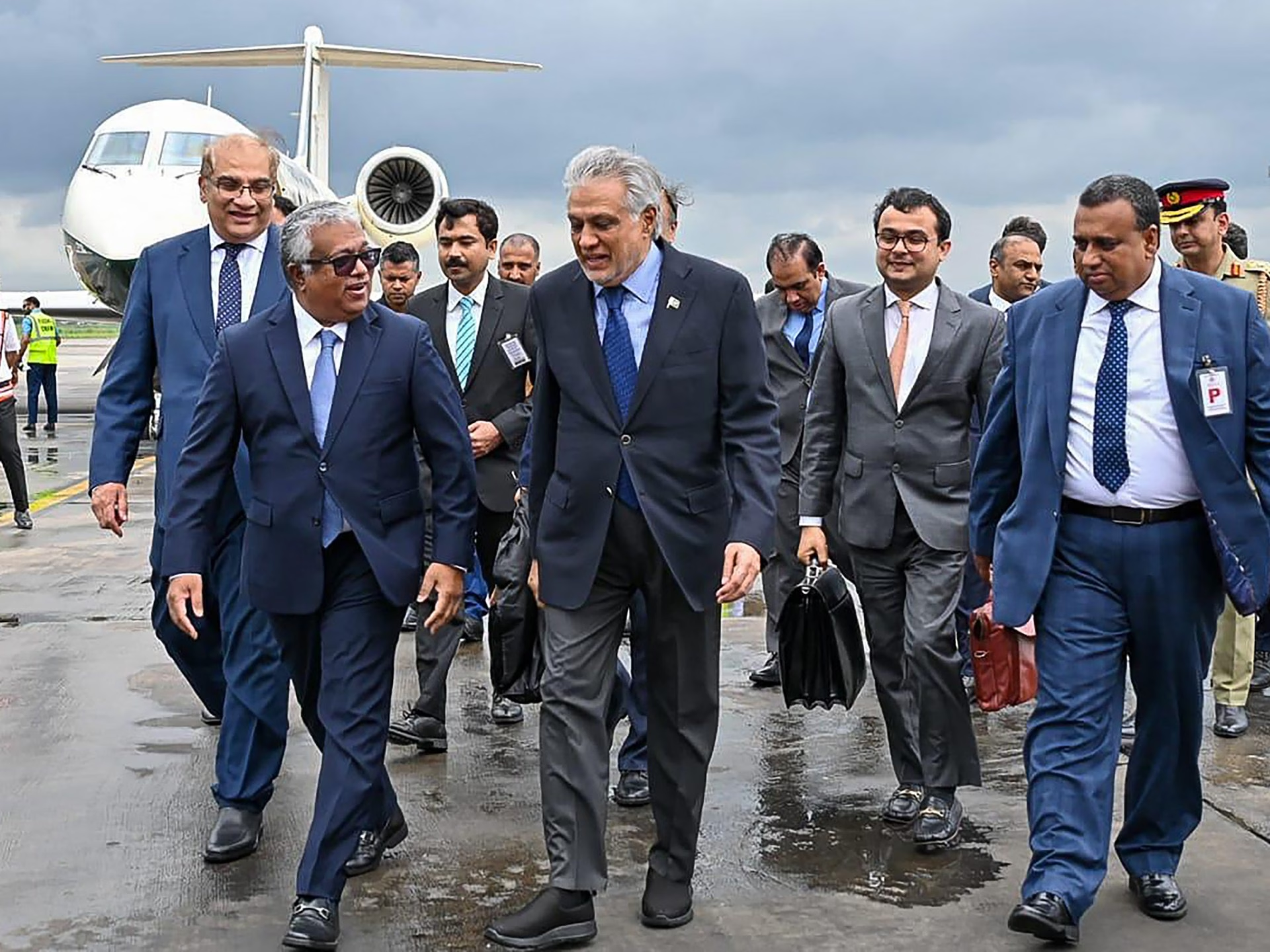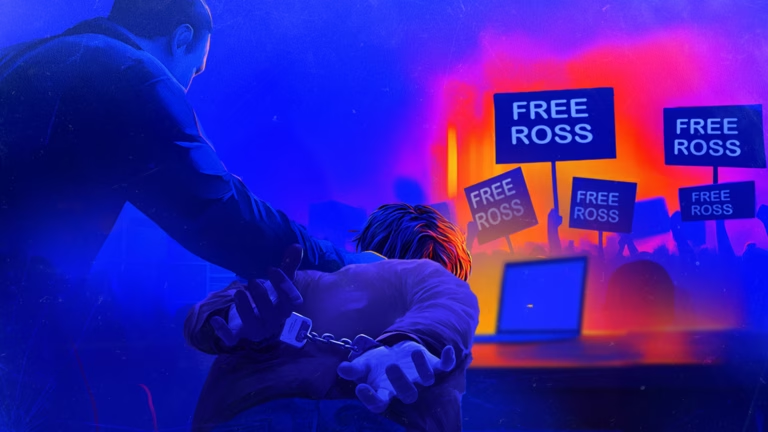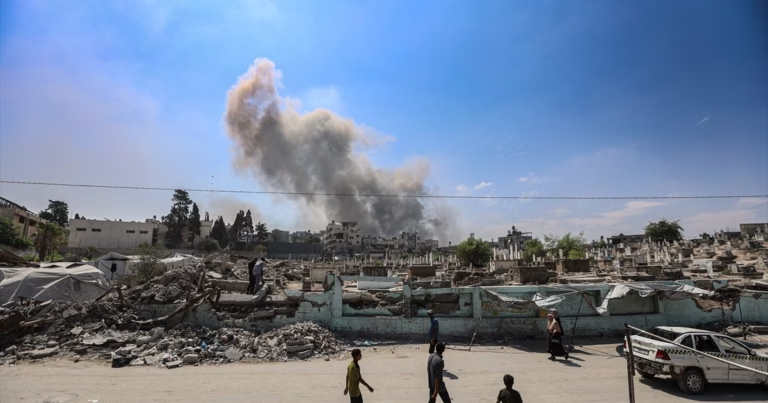Pakistan and Bangladesh are expected to sign several agreements, including on trade, as the two nations strengthen their ties.
Dar’s visit to Bangladesh on Saturday marks the first high-level visit from Pakistan since 2012, with Islamabad labeling it as a “historic” and “significant milestone in Pakistan-Bangladesh relations”.
Since last August, relations between Dhaka and Islamabad have improved following a mass uprising in Bangladesh that replaced Prime Minister Sheikh Hasina, leading to her exile in New Delhi. Hasina was perceived as having a more pro-India stance.
Dar’s visit comes shortly after the two countries reportedly relaxed visa restrictions on travel between them.
Pakistan and Bangladesh are set to sign several agreements, including those related to trade, on Sunday. The two countries initiated sea trade last year, expanding government-to-government commerce in February.
“The two sides discussed ways to promote economic and commercial cooperation, with a special focus on enhancing trade and promoting connectivity,” Pakistan’s Ministry of Foreign Affairs stated on X following a meeting between Dar, Commerce Minister Jam Kamal Khan, and Bangladesh’s commerce adviser, Sheikh Bashiruddin.
Additionally, there are plans to introduce direct flights between Dhaka and Karachi, with local carriers seeking approvals, according to The Daily Star.
Pakistan’s Foreign Ministry also announced that Dar will meet with Bangladesh’s interim leader, Muhammad Yunus.
Addressing a press conference at the Pakistani High Commission in Dhaka on Saturday, Dar emphasized his country’s “strong desire to establish a cooperative and forward-looking relationship with Bangladesh”.

‘Active and stronger’
The Pakistani diplomat also met with Bangladeshi political delegations, including those from the Jamaat-e-Islami party, which opposed the secession of Bangladesh from Pakistan in 1971.
“We discussed how to further enhance relations with the brotherly Muslim state [Pakistan] in the coming days and how to make the regional alliance [South Asian Association for Regional Cooperation] more active and stronger,” Syed Abdullah Muhammad Taher, deputy leader of Jamaat-e-Islami, told reporters after the meeting.
Dar also met with leaders of the newly formed National Citizen Party (NCP), which spearheaded last year’s uprising, and with the leadership of the Bangladesh Nationalist Party (BNP).
Earlier, top military commanders from both countries met in Pakistan.
On the preceding day, Pakistani Minister Khan held talks in Dhaka, agreeing to set up joint commissions to boost trade and investment.
Pakistan’s military has been accused of atrocities during the 1971 war when East Pakistan fought for independence and became Bangladesh. Although Bangladeshi estimates suggest millions were killed, Pakistan has not issued an official apology for these killings.
After 1971, Bangladesh heavily relied on India, a neighboring country that almost encircles Bangladesh’s 170 million population.
However, interim leader Yunus has insisted that India return Hasina, who refuses to attend her trial on charges of crimes against humanity.
Dhaka this month accused India of supporting Hasina’s now-outlawed Awami League party, allegations New Delhi denied, stating it “does not permit political activities against other countries to be conducted” from its territory.
